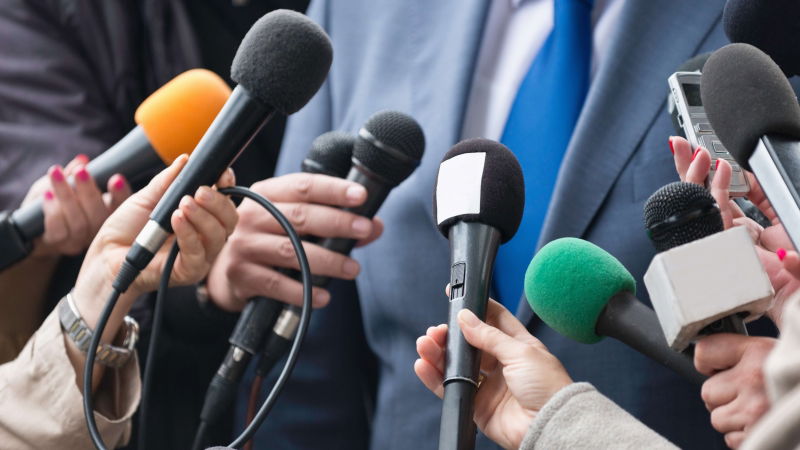



HK press freedom index hits new low as journalists hesitant to criticise Beijing
share on
Hong Kong’s press freedom index has hit a new low in 2022 as journalists believe they are most hesitant about criticising the central government, compared with the Hong Kong government or business tycoons.
The general public portion of the Press Freedom Index survey was conducted by the Hong Kong Public Opinion Research Institute between 6 and 20 March this year, with 1,026 Hong Kong residents above 18 years of age and who can speak Cantonese. The journalist portion of the survey was conducted by the Hong Kong Journalists Association (HKJA) between 9 March and 13 April this year, which successfully polled 249 journalists.
According to the ratings given by the general public and journalists, the city's press freedom index in 2022 hit the lowest, at 41.4 and 25.7 respectively, although the decline slowed down compared to the steep downturn from a year earlier. The rating given by journalists has dropped for four consecutive years, from 40.9 points in 2018 to 25.7 in 2022.
Of the two-part survey’s respondents, 91% of journalists and 46% of the general public believe that press freedom has become worse than a year earlier. However there was a marked increase in the number of respondents who said they believe the situation remained unchanged compared to 2021, leading to a deceleration in the Index’s downward trend.
Journalist respondents believed that they were most hesitant about criticising the central government, compared with the Hong Kong government or business tycoons. Their rating dropped 0.7 points to just 1.5 out of 10. The second most common factor that attributed to the decline was due to self-censorship, according to the surveyed journalists.
Meanwhile, 97% of surveyed journalists believed charging Stand News editors with sedition was damaging to press freedom, of which 90% believe it to be very damaging. Further, 96% of journalists believed charging media tycoon Jimmy Lai under the National Security Law was either quite or very damaging to press freedom. Other incidents considered quite or very damaging to press freedom by the majority of journalists were when the government repeatedly condemned new media for publishing “misleading” content as well as the government’s advocacy to legislate against fake news.
However, journalists’ ratings indicated that they believed the attitude of Hong Kong government officials, including the chief executive, has improved when they replied to media inquiries. The rating improved from 2.4 to 3.4 points.
On the other hand, members of the general public polled believed the second most common factor contributing to the decline was pressure exerted by media supervisors or by their management on journalists, while journalists believed the second most common factor (ranked 9th out of 10) was self-censorship.
Meanwhile, 49% of surveyed citizens believed that arresting and charging several senior members of news media with violating the National Security Law or with sedition was either quite or very damaging to press freedom.

The HKJA believed that the media industry experienced a bitter winter over 2022, as veteran journalist and former Stand News opinion writer Allan Au Ka Lun was arrested in April on suspicion of conspiring to publish seditious materials. Investigative news outlet Factwire ended operations in June, followed by the HKJA’s own chairperson Ronson Chan’s arrest in September, who was charged with obstructing police.
The HKJA believed that the continuous attacks on journalists by the government, which controls massive resources and wields public power, shows that Hong Kong no longer has space for critical voices. The media industry will succumb to the chilling effect as they find themselves in an unequal power dynamic. This directly causes the public to have access to fewer and less diverse information than before. Obstructed flow of information and damages to press freedom will in turn be unfavourable to the city’s business environment. Hong Kong may retain its place as an international financial centre in Asia only if its freedom of the press is protected.

Related articles:
HK ranks 140th in world press freedom, lags behind SG and MY
share on
Free newsletter
Get the daily lowdown on Asia's top marketing stories.
We break down the big and messy topics of the day so you're updated on the most important developments in Asia's marketing development – for free.
subscribe now open in new window
